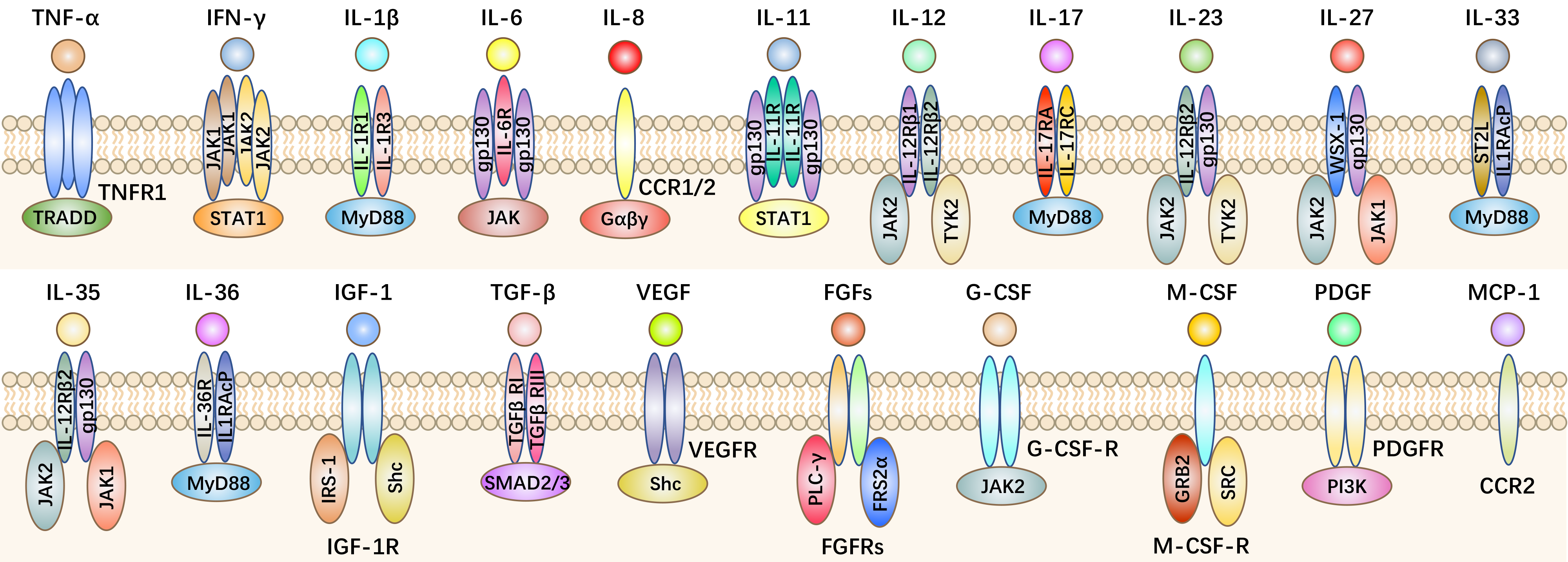Cytokines are low-molecular-weight soluble proteins induced by various cells in response to immune antigens, mitogens, or other stimulation factors. They regulate innate and adaptive immunity, hematopoiesis, cell growth, multipotent adult progenitor cells (MAPCs), tissue repair, and other functions. Cytokines can be classified into interleukins, interferons, tumor necrosis factor superfamily, colony-stimulating factors, chemokines, growth factors, among others. These multifunctional molecules act in the body through paracrine, autocrine, or endocrine pathways, exhibiting pleiotropy, redundancy, antagonism, synergy, and other physiological properties. They form a complex cytokine regulatory network involved in various essential physiological functions in the human body.
Cytokines play crucial roles in the development, differentiation, immune response, and immune regulation of immune cells; however, they can also act as a "double-edged sword," contributing to the onset of various diseases under certain conditions. For instance, during immune responses, immune cells secrete a large amount of cytokines that in turn stimulate immune cells. If this positive feedback regulation is disrupted, it can lead to a "cytokine storm," a phenomenon observed in various diseases such as acute respiratory distress syndrome, SARS (severe acute respiratory syndrome), and influenza.

| Product No. | Product Name | Gene |
Cytokines are low-molecular-weight soluble proteins induced by various cells in response to immune antigens, mitogens, or other stimulation factors. They regulate innate and adaptive immunity, hematopoiesis, cell growth, multipotent adult progenitor cells (MAPCs), tissue repair, and other functions. Cytokines can be classified into interleukins, interferons, tumor necrosis factor superfamily, colony-stimulating factors, chemokines, growth factors, among others. These multifunctional molecules act in the body through paracrine, autocrine, or endocrine pathways, exhibiting pleiotropy, redundancy, antagonism, synergy, and other physiological properties. They form a complex cytokine regulatory network involved in various essential physiological functions in the human body.
Cytokines play crucial roles in the development, differentiation, immune response, and immune regulation of immune cells; however, they can also act as a "double-edged sword," contributing to the onset of various diseases under certain conditions. For instance, during immune responses, immune cells secrete a large amount of cytokines that in turn stimulate immune cells. If this positive feedback regulation is disrupted, it can lead to a "cytokine storm," a phenomenon observed in various diseases such as acute respiratory distress syndrome, SARS (severe acute respiratory syndrome), and influenza.

| Product No. | Product Name | Gene |